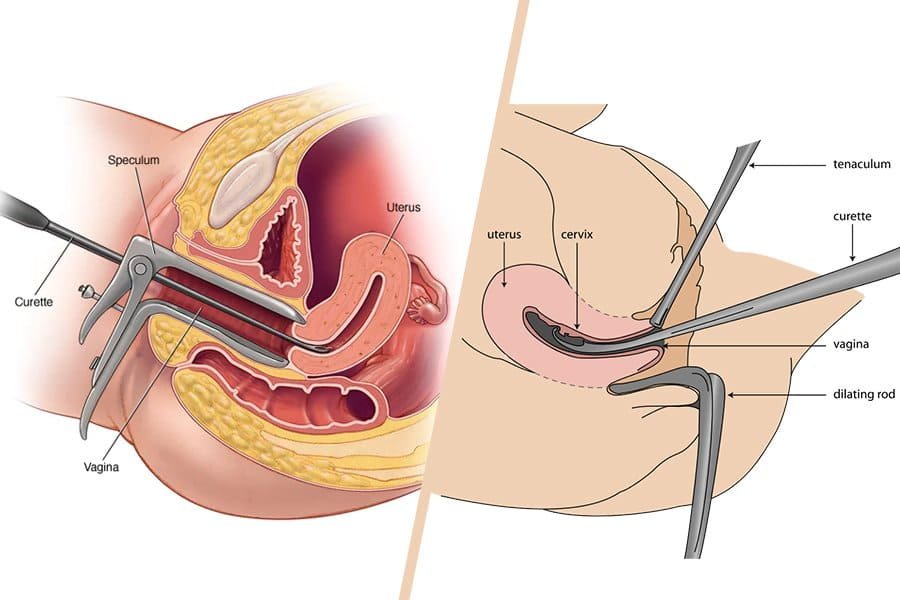
What Is Dilation and Curettage?
Dilation and curettage or D&C is one of the commonest gynaecological procedures. During a D&C the cervix or neck of the uterus is dilated to permit the introduction of instruments so that tissue may be removed from the uterus.
When is D&C necessary?
D&C may be necessary to obtain a sample from the lining of the uterus in cases of abnormal uterine bleeding. It may also be performed to remove a focal lesion e.g. a polyp from the uterine lining. In both of these situations, the tissue obtained is sent to a pathologist for examination. This helps to differentiate precancerous and cancerous lesions from benign lesions, ensuring that appropriate treatment is given. Sometimes, the D&C itself is used to treat an episode of heavy uterine bleeding when other methods have failed.D&C is also necessary in some cases when a miscarriage is incomplete. Pregnancy tissue retained in the uterus can cause heavy bleeding and infection and must be removed. In cases where a pregnancy needs to be terminated, a D&C may be necessary.
Is a D&C painful?
D&C is usually performed with some form of anaesthesia. While general anaesthesia is commonly used, a paracervical block may be used to ensure that the procedure is painless. The paracervical block involves injection of a local anaesthetic on either side of the cervix.
For how long will I be hospitalized after a D&C?
A D&C is usually considered a day case, meaning that you may go home on the same day, once the effect of your anaesthesia has worn off.
What should I avoid after a D&C?
Restrictions after a D&C are few and most persons are able to resume normal activities once the effects of the anaesthesia have worn off. Depending on your particular circumstances, your doctor may advise a period of sexual abstinence to decrease the chances of infection.
What are the possible complications of D&C?
D&C is one of the commonest procedures performed in gynaecology and is usually free of complications, however all procedures carry some risk. Apart from the possibility of adverse reactions to the anaesthetic agents used, there is the risk of perforation of the uterus. This occurs when an instrument used in the procedure goes through the muscle of the uterus. Most of these cases will heal without treatment; some will require further surgery. Other possible risks include heavy bleeding and infection. Depending on the circumstances your doctor may prescribe antibiotics to avoid infection.
Will a D&C affect my fertility?
An uncomplicated D&C has no effect on future fertility. At RSS we are fully equipped to perform your D&C painlessly, safely and in a friendly and caring environment.


